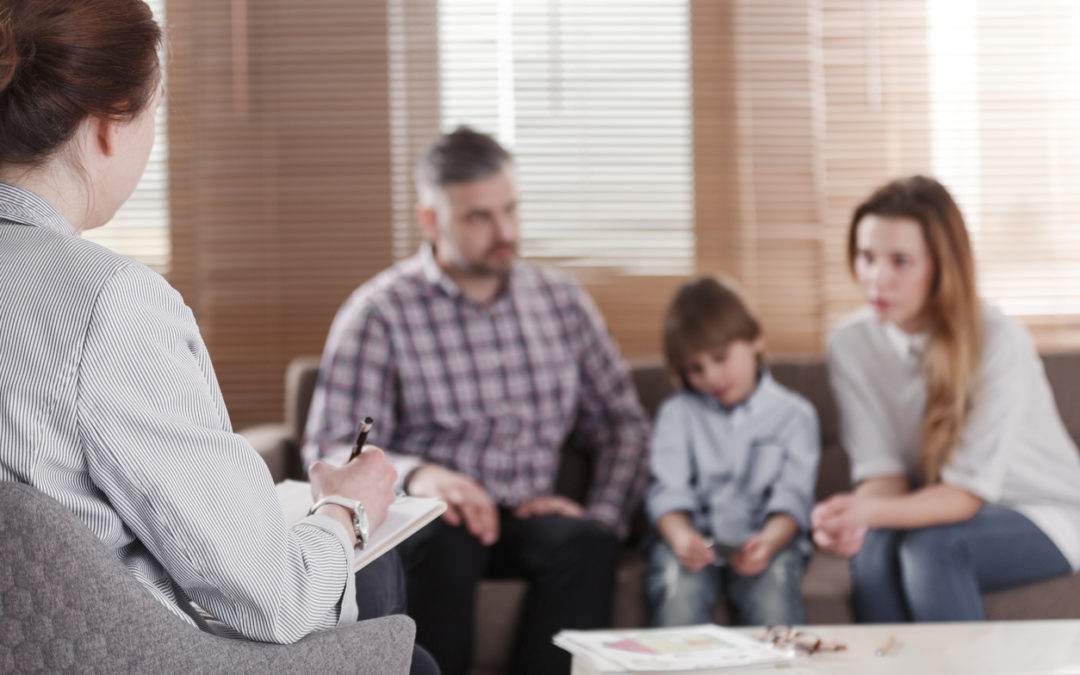Whether it’s taken years, months, or weeks to make end-of-life preparations, the decision to move a loved one to hospice is never an easy one. It can cause major stress and grief for an entire family. Though emotional support for patients is part of the hospice care package, some people don’t realize hospice grief counseling is available to the family as well. In this troubling time, it’s important to take care of yourself just as you’re taking care of your loved one in hospice. So when does a family need hospice grief counseling, and why is it so important?
The Importance of Grieving
Grieving is a vital part of the healing process during a tough time or after a loss. Grieving comes from a place of love; it’s a cathartic experience that gives us the chance to take a step back and appreciate a period of our lives that has ended or is coming to an end. After this process is over, we’re freer to move on and embrace the future with confidence and a deeper perspective.
A common misconception surrounding grieving is that everybody experiences it in the same way. In reality, grieving is a personal and subjective process—it’s different for everyone. When a family decides to move a loved one into hospice, they may benefit from hospice grief counseling for that reason.
Ray Marcel, RN and Chaplain at Hospice of South Louisiana, reminds us that, “Although much time can be spent on anticipatory grief, no matter how prepared a person seems to be for an approaching death, the actual moment will be devastating and require quick support from family, clergy, and perhaps group bereavement activity.” This goes to show that no matter how affected we are before or after a loss, we could all benefit from some kind of support. “For those who do not desire group settings, I would recommend close family and/or friends for support. Church family and/or clergy can also be a great help in this area,” he says.
The Normal Stages of Grieving
Though the way we experience and handle grief differs from person to person, the general steps are more or less present in everyone. They don’t necessarily happen in any specific order and are as follows:
- Denial. When we experience denial, we struggle to make it through the day. Our lives seem a bit meaningless, and it’s difficult to care much about anything.
- Anger. During the anger stage we experience mood swings. We may feel frustrated or angry towards healthcare professionals, family members, or friends.
- Bargaining. In bargaining, we tend to go through the “what ifs.” This is when we think about what we could have done differently to maybe change the way things happened.
- Depression. Depression is the most recognizable stage in the grief cycle. Depression is constant, debilitating sadness. We may have trouble motivating ourselves to enjoy life.
- Acceptance. Acceptance isn’t necessarily being “all right” with the unfortunate events in our lives; it’s more like incorporating the experience into our lives in order to learn and grow. We also accept that a new stage has begun.
Signs You may Need Hospice Grief Counseling
Grief related to putting a loved one in hospice care can be immense. If hospice-related grief is causing major issues in your life, you may need hospice grief counseling. Here are some common signs to watch out for:
- Your personal relationships are suffering. If you can’t seem to bring yourself to leave the house to see friends anymore, you may want to consider hospice grief counseling.
- Your work performance and productivity are suffering. If you start to make mistakes at work but simply don’t care, you may need to seek help.
- You have self-destructive thoughts. If you feel like you may be a danger to yourself or others, you definitely need to seek help in grief counseling.
- You experience loss of interest in hobbies. If you don’t have the drive to do anything or feel numbness towards pastimes you used to love, you could benefit from counseling.
“Many individuals think they need to hit the rock bottom of despair before sitting down with a grief counselor, but that is not true,” says Sherry Staidum, a Licensed Master Social Worker at Hospice of South Louisiana. If left unchecked and unexamined, these feelings and symptoms could get worse with time, leading to serious consequences. That’s why we recommend hospice counseling for every family that decides to make end of life preparations for a loved one.
What Hospice Grief Counseling Can Do for You
Healthcare professionals know that grief is how we move on and grow after a tough time. Since everybody experiences grief in a different way, some people need external help to overcome the process. Healthcare professionals know exactly how debilitating grief can be, and have all the skills necessary to help you move on into the next stage of your life.
To get the most out of your counseling, Sherry remarks that, “While a counselor/therapist can help you feel better, individual counseling is not a cure. It’s a process that takes hard work and real effort that can be very effective.” In this way, counseling is a two-way street; you get out what you put in, and that’s important to remember when seeking professional help.
Where Can I Get Hospice Grief Counseling?
Here at Hospice of South Louisiana, we’re dedicated to helping families who have decided to move loved ones into hospice in every way we can. Our hospice grief counseling will help you through this extremely difficult time while providing the best care to your loved one in our facility. Contact us today to learn more.

